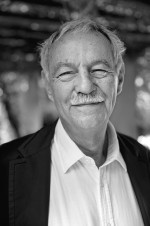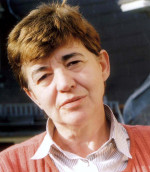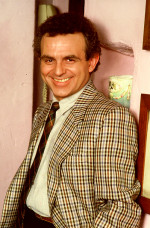Writers and Barcelona
Barcelona has been and keeps being a perfect scene for literary works, a source of inspiration for writers who were born here and a welcoming place for writers from around the world who have described it in their books.
Spanish language novelist and writer. He has a degree and PhD in French Literature from the University of Lille and in Theory of Art and Comparative Literature from the University of Granada. He made an impressive début in 2012 with his first novel, and in 2016 he published his second novel Tuyo es el mañana set in Barcelona, in which fate marks the destiny of the characters: a girl, a dog, a woman, a man, an old man, and a picture. He is member of the select Oulipo, a group set up for the research into new language formats, created by Raymond Queneau and François Le Lionnais. Previous members include George Perec, Italo Calvino and Marcel Duchamp.
She formed part of a generation of poets including Enric Casasses, Dolors Miquel, Martí Sales, Andreu Subirats and Guim Valls, who seem to make time stand still in the city's bars and plazas. In the year 2000, she published her first book, L’acròbata tampoc en sortirà il·lès which won the Amadeu Oller Prize. In the words of one of the members of the jury, it is “a deep-rooted urban-inspired chronicle that is infuriatingly provocative.” Along with some of her poetry colleagues, they have set up a literary group, Tucson, at a venue between Abecederia market and Carrer Còrsega.
Writer, poet, translator, and literary critic. Professor of Spanish and Latin American literature at the University of Westminster in London, he is also a lecturer on the Master in Literary Creation at Pompeu Fabra University in Barcelona. Beatriz Miami, published by Anagrama in 1991, is one of his novels set in Barcelona. He has translated works by Carson McCullers, Djuna Barnes, Vladimir Nabokov and Cesare Pavese, and has been a literary critic for the newspaper La Vanguardia for many years.
From her loft on Carrer Mare de Déu de Montserrat she wrote the work that won her so many new readers and awards. Highlights include winning the Cervantes literature award or the prestigious golden Medalla d’Or Award for outstanding merit by the city. Her book Primera memoria (Destino, 1960) makes most frequent reference to the city of Barcelona.

Writer and playwright. He became popular in 1975 with his work La verdad sobre el caso Savolta, very warmly received by critics. With the extremely popular La ciudad de los prodigios (1986), he painted a particularly detailed picture of the city at the time of the Universal Expositions. He has written many comedy novels featuring a mad detective who investigates especially tricky cases in the city. He won the 2016 Cervantes Award.
A Majorcan writer, he grew up in Barcelona where he became acquainted with the likes of Quim Monzó, Joan Brossa, Narcís Comadira, Maria del Mar Bonet and Joan Manuel Serrat. A result of those years in the city, he published his experimental novel L’adolescent de sal, which won the 1973 Prudenci Bertrana, but could not be published until after Franco’s death. His writing style showcases his characteristic poetic and exuberant language and acidic criticism of society.
Writer, translator and first representative of humanism in Catalan literature, he was born on Carrer dels Especiers (now Carrer Llibreteria), son of an pharmacist. He was prothonotary to Queen Elionor of Sicily. His experience in this area of sciences and humanities led him to his position as clerk at the Court of Joan I of Aragon and Violant de Bar. Following the death of Joan I, he was accused of corruption and treason, leading him to write his masterpiece Lo somni, written in first person. He introduced the Renaissance style to Catalonia, effectively in advance of fifteenth century literature.
Novelist and poet, he made his début in the world of narrative with La claque, a satire about a professional applauding school, whihc attracted the attention of critics. He recreated the final years of Felip IV and The Plague in Barcelona in his work El jaquemart (1991) and the beginning of the twentieth century Barcelona in El cielo de los mentirosos (2016)

Novelist and poet, she formed part of the Barcelona intelligentsia of the sixties, seventies, and eighties, and was known as the Gauche Divine. She was friends with Carlos Barral, Pere Gimferrer, Ana María Matute and Maruja Torres, who she taught. She won the City of Barcelona Award for literature on two occasions, in 1985 and 1995. She was included in the poetry anthology “Nueve novísimos” at just twenty-one years of age. Her literary prestige became consolidated with her novel “Walter, ¿por qué te fuiste?”, published in 1973, a colourful and controversial novel given that it portrays the dawn of homosexuality. She is the sister of Terenci Moix, also a writer.

Born on Carrer de Joaquim Costa, in the Raval district, where his parents owned the emblematic bar, Granja de Gavà. He is one of the most popular and widely read writers in both Catalan and Spanish languages, especially after winning the Premi Planeta award in 1986. He has written well over twenty novels set in the backstreets of the city he knew so well. In Ciutat Vella there is a plaque bearing his name. His sister Ana Maria Moix, is also a writer.



